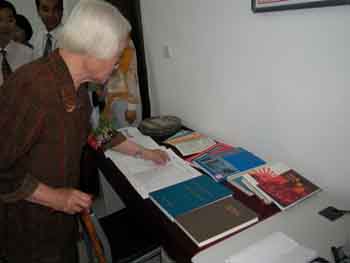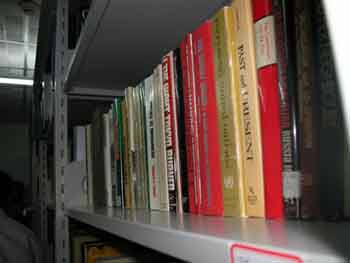| Tools: Save | Print | E-mail | Most Read |
| Documents Proving Japanese Atrocities Added to China's Archives |
| Adjust font size: |
The Liaoning Provincial Archives in northeast China on Friday received the donation of a substantial number of wartime documents relating to Comfort Women, the Nanjing Massacre and other brutalities committed by Japanese troops in China during WWII. The donation was made by the son of late American-Chinese historian Wu Tianwei, a history professor at Southern Illinois University who dedicated himself to the study of Japanese wartime brutalities and started the first "Japanese Wartime Atrocity Memorial" outside China in California. The donation includes more than 1,000 videotapes tracking how the Japanese invaders captured Shanghai and Cangxian County in north China's Hebei Province, as well as 2,000 files, books and magazines preserving historical proofs about Comfort Women, the Nanjing Massacre, and the biochemical experiments carried out on Chinese civilians in northeast China by the notorious Unit 731 of the Japanese Imperial Forces. Briand Wu, Wu Tianwei's son, said he was very happy to see the precious books and research materials stored here, and hoped they will play an important role in providing further understanding of the Japanese atrocities that future Chinese generations should remember. "I am following my father's will, I'm sure that's what he wanted to see," he said at the donation ceremony. More and more evidence proving Japanese wartime atrocities have been added to the Chinese museums after collectors donated them from home and abroad. Some 20 items including combat dispatches, letters and newspapers were donated last September by Daito Satoshi, abbot of the Kyoto-based Enkoji Temple, and will be displayed in the Memorial Hall of the Victims of the Nanjing Massacre. Even though there is already abundant proof, some right-wing conservatives in Japan continue to question the massacre and the numbers of people that were murdered in Nanjing. At a regular press conference in Beijing, Chinese Foreign Ministry Spokesman Qin Gang on Thursday criticized Japanese dietmen's denial and cover-up of the Nanjing Massacre. Asked to comment on the Japanese dietmen's denial of the massacre in a report released on June 19, he said their attempts to obliterate or conceal the historic facts including the Nanjing Massacre would bring them international condemnation. Qin said that those who tried to blot out the memory of the massacre have an unethical approach to history and lack courage. This year marks the 70th anniversary of the Nanjing Massacre. Qin said that China hoped Japan would adopt a responsible attitude in handling historical issues including the Nanjing Massacre and the issue of comfort women. The massacre occurred in December 1937 when Japanese troops occupied Nanjing, then capital of China. More than 300,000 Chinese were killed, one third of the city's buildings were burned and more than 20,000 women were raped in eight weeks.
(Xinhua News Agency June 23, 2007) |
| Tools: Save | Print | E-mail | Most Read |
 |
| Related Stories |
|


